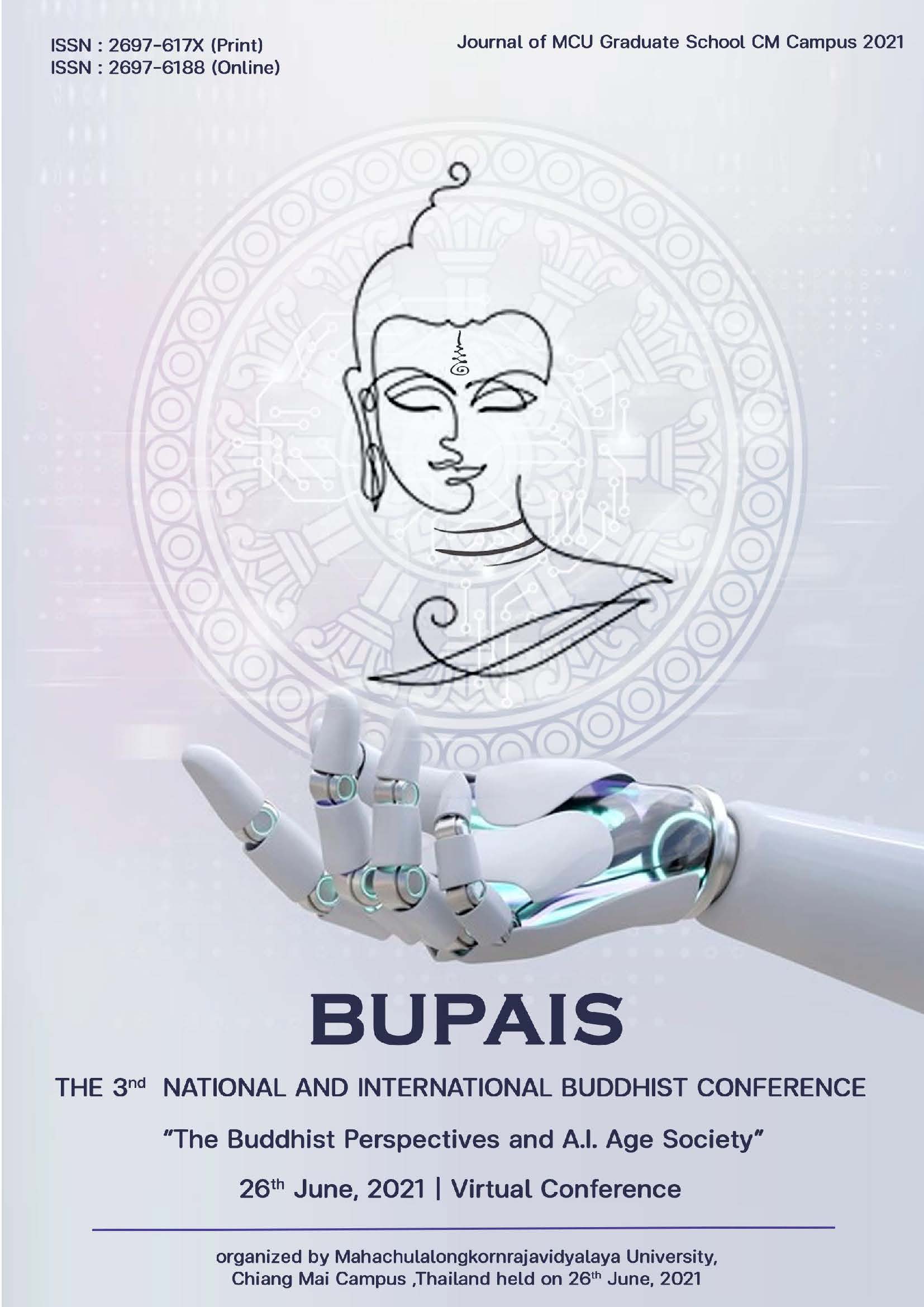เบญจขันธ์ : พุทธชีวทัศน์เพื่อการพัฒนาสติปัญญาของมนุษย์
บทคัดย่อ
บทความนี้ มีวัตถุประสงค์เพื่อศึกษา “เบญจขันธ์: พุทธชีวทัศน์เพื่อการพัฒนาสติปัญญาของมนุษย์” พบว่า ชีวิตตามหลักเบญจขันธ์ มีการแสดงถึงความเชื่อมโยงของส่วนประกอบทั้ง 5 ได้แก่ รูป (ร่างกาย) เวทนา (อารมณ์รู้สึก) สัญญา (กำหนดหมายรู้) สังขาร (การปรุงแต่งจิต) และวิญญาณ (การรู้ชัดในอารมณ์) เนื่องจากเป็นองค์ประกอบของชีวิตที่สำคัญในกระบวนการพัฒนาสติปัญญาของมนุษย์ให้สมบูรณ์ขั้นสูงสุด ด้วยการใช้กระบวนการตามศีล สมาธิ และปัญญา โดยต้องคำนึงหลักพื้นฐานด้านพัฒนาการศักยภาพของมนุษย์ที่สังคมปัจจุบันให้ความสำคัญ ประกอบด้วย พัฒนาการทางด้านร่างกาย พัฒนาการทางอารมณ์ พัฒนาการทางสังคม พัฒนาการทางสติปัญญา และพัฒนาการทางศีลธรรมควบคู่กันไป จึงเป็นเครื่องมือที่สมบูรณ์ในการกำจัดความไม่เข้าใจและไม่รู้จริง (อวิชชา) ในเบญจขันธ์นั้น อันที่เป็นสาเหตุให้มนุษย์ดำเนินชีวิตอย่างไม่ถูกต้องและมีความเข้าใจต่อชีวิตของผู้อื่นในทางที่ผิดตามไปด้วย ตรงกันข้ามหากมีการพัฒนามนุษย์ให้มีทัศนคติ ความเข้าใจและความคิดเห็นต่อชีวิตของตนที่ถูกต้องแล้ว การมีท่าทีต่อสิ่งมีชีวิตบนโลกนี้ประเภทอื่น ๆ ก็จะถูกต้องเช่นกัน ทุกชีวิตก็จะดำเนินชีวิตบนโลกร่วมอย่างเข้าใจและมีการปฏิบัติต่อกันอย่างถูกต้องและเหมาะสม
บรรณานุกรม
คณะศึกษาศาสตร์ มหาวิทยาลัยศรีนครินทรวิโรฒ.
ปรีชาพล ชูศรี และคณะ. (2562). เทคโนโลยีปัญญาประดิษฐ์ สำหรับการบริหารงานและการบริการภาครัฐ
เวอร์ชัน 1.0 (พฤศจิกายน 2562). กรุงเทพมหานคร: บริษัท ส.พิจิตรการพิมพ์ จำกัด.
พุทธทาสภิกขุ. (ม.ป.ป.). คู่มือมนุษย์. กรุงเทพมหานคร: ธรรมสภา.
พระธรรมปิฎก (ป.อ. ปยุตฺโต). (2546). การพัฒนาที่ยั่งยืน (Sustainable Development). พิมพ์ครั้งที่ 9. กรุงเทพมหานคร: โรงพิมพ์เรือนแก้ว.
พระธรรมปิฎก (ป.อ. ปยุตฺโต). (2546). พจนานุกรมพุทธศาสน์ ฉบับประมวลศัพท์. พิมพ์ครั้งที่ 10.
กรุงเทพมหานคร: บริษัท เอส.อาร์.พริ้นติ้ง แมส โปรดักส์ จำกัด.
พระพรหมคุณาภรณ์ (ป.อ. ปยุตฺโต). (2556). ปรัชญการศึกษาไทย ภาค พุทธธรรม: แกนนำการศึกษา
(ภาคต้นของหนังสือ ปรัชญาการศึกษาของไทย). กรุงเทพมหานคร: สำนักพิมพ์ผลิธัมม์.
สมเด็จพระพุทธโฆษาจารย์ (ป.อ. ปยุตฺโต). (2560). จะพัฒนาคนกันได้อย่างไร. พิมพ์ครั้งที่ 11.
กรุงเทพมหานคร: โรงพิมพ์เจริญดีมั่นคงการพิมพ์.
สุกมล มุ่งพัฒนสุนทร. (2018). ยุคแห่งสังคม AI: หาก AI มาแทนที่มนุษย์. เอกสารการประชุมเสนอ
ผลงานวิจัยระดับชาติ มหาวิทยาลัยสุโขทัยธรรมาธิราช ครั้งที่ 8. พฤศจิกายน.
Cronbach, Lee J.. (1971). Essential of Psychological Testing. 3rd. ed., New York: McGraw-Hill, Inc..
Erikson E. (1968). Identity: Youth, and Crises. New York : Norton.
Kohiberg L.. (1981). Essay on moral development. New York: Harper & Row.
Piaget, J. (1964a). (1968). Six psychological studies. (A Tenzer & D. Elkind, trans.) New York:
Vintage Books.
Thorndike, E.L.. (1967). Animal Intelligence. New York: Macmillan.
Vygotsky, L. S.. (1986). Thought and Language. Cambridge, MA : MIT Press.
Wechsler David. (1958). The Measurement and Appraisal of Adult Intelligence. 4th. Ed..
The William & Wilkins Company, Baltimore

